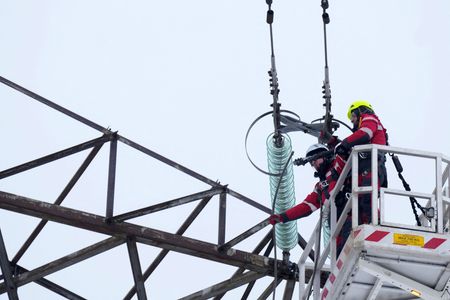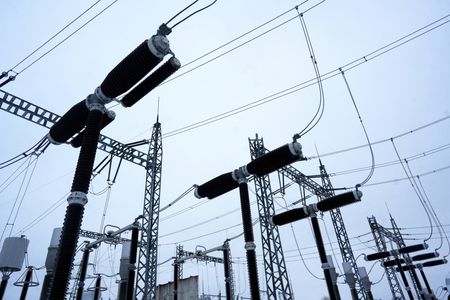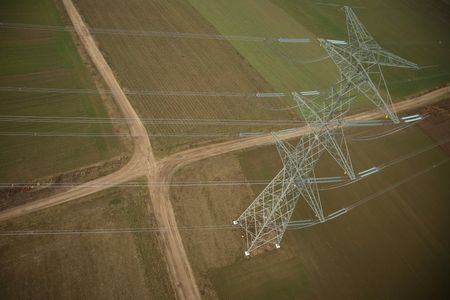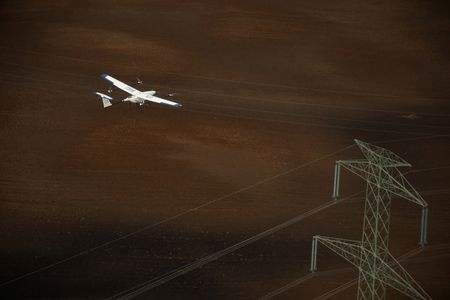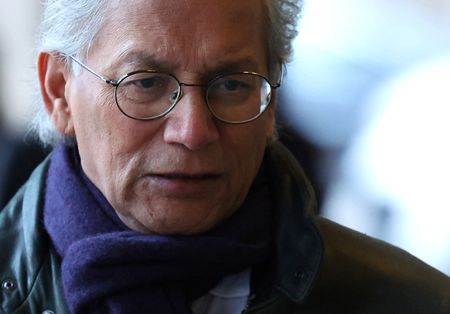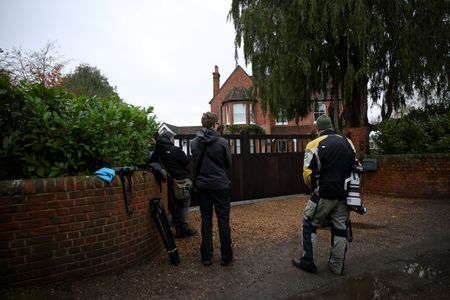By Andrius Sytas and Janis Laizans
VILNIUS (Reuters) -The Baltic states of Estonia, Latvia and Lithuania completed a switch from Russia’s electricity grid to the EU’s system on Sunday, severing Soviet-era ties amid heightened security after the suspected sabotage of several subsea cables and pipelines.
European Commission President Ursula von der Leyen hailed the move, years in the planning, as marking a new era of freedom for the region, in a speech at a ceremony in Vilnius alongside the leaders of the three countries and the Polish president.
“These chains of power lines linking you to hostile neighbours will be a thing of the past,” von der Leyen said.
Debated for many years, the complex switch away from the grid of their former Soviet imperial overlord gained momentum following Moscow’s annexation of Crimea in 2014 and its invasion of Ukraine in 2022.
It is designed to integrate the three Baltic nations more closely with the European Union and to boost the region’s energy security.
“This is freedom, freedom from threats, freedom from blackmail,” von der Leyen said, adding that the wider European continent was also liberating itself from the use of Russian natural gas.
Ukrainian President Volodymyr Zelenskiy said in his nightly video address that Kyiv had taken the same step in 2022 “and the Baltic states are also ridding themselves of this dependence.
“Moscow will no longer be able to use energy as a weapon against the Baltic states.”
After disconnecting on Saturday from the IPS/UPS network, established by the Soviet Union in the 1950s and now run by Russia, the Baltic nations cut cross-border high-voltage transmission lines in eastern Latvia, some 100 metres from the Russian border, handing out pieces of chopped wire to enthusiastic bystanders as keepsakes.
HIGH ALERT
The Baltic Sea region is on high alert following power cable, telecom and gas pipeline outages between the Baltics and Sweden or Finland. All were believed to have been caused by ships dragging anchors along the seabed following Russia’s invasion of Ukraine.
Russia has denied any involvement.
Poland and the Baltics deployed navy assets, elite police units and helicopters to monitor the area after an undersea power link from Finland to Estonia was damaged in December, while Lithuania’s military began drills to protect the overland connection to Poland.
Analysts say any further damage to links could push power prices in the Baltics to levels not seen since the invasion of Ukraine, when energy prices soared.
The IPS/UPS grid was the final remaining link to Russia for the three countries, which re-emerged as independent nations in the early 1990s at the fall of the Soviet Union, and joined the European Union and NATO in 2004.
The three staunch supporters of Kyiv stopped purchases of power from Russia following Moscow’s invasion of Ukraine, but have relied on the Russian grid to control frequencies and stabilise networks to avoid outages.
Analysts say that maintaining a constant power supply requires a stable grid frequency, which can more easily be obtained over time in a large synchronised area such as Russia or continental Europe, compared to what the Baltics can do on their own.
For Russia, the decoupling means its Kaliningrad exclave, located between Lithuania, Poland and the Baltic Sea, is cut off from Russia’s main grid, leaving it to maintain its power system alone.
The Kremlin said it has taken all necessary measures to ensure uninterrupted, reliable operation in its electricity system, including the construction of several gas-fired power plants in Kaliningrad.
(Reporting by Andrius Sytas and Janis Laizans in Vilnius; Editing by Terje Solsvik, David Holmes and Ros Russell)

